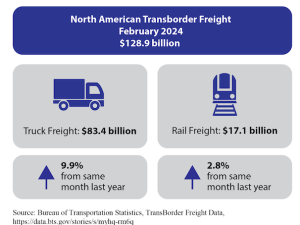Canadian processors who crush the oilseed to make vegetable oil and meal face a challenge bringing in adequate supplies, even if the strike lasts only until Monday as expected.
Exporters face similar problems moving canola seed to port from country elevators, and honoring sales of oil and meal if crushers are unable to pump out their usual volumes.
"It's clearly going to hurt, on the other hand it's coming when ships have been throttling down," said Marlene Boersch, analyst at Mercantile Consulting. "It's at a time when it will do the least damage."
With just over two months to go in the 2011/12 crop marketing year, last harvest's stocks are winnowing down, she said.
Canada is the world's biggest grower of canola, or rapeseed, just ahead of China, and is responsible for more than two-thirds of global trade. Its leading exporters make up a who's who of global agriculture, including Cargill Ltd, Viterra , Richardson International Limited, Archer Daniels Midland Co, Bunge Ltd and Louis Dreyfus Corp .
Even a strike that lasts less than a week will have a profound effect on canola exports, said one Vancouver-based canola exporter, who was not authorized to speak publicly.
"You may not lose that capacity (permanently) but you sure don't get it back when you start up again," the exporter said. "Canola's not as hectic as we once were, but we're still pretty busy, and oil and meal is very steady, so there will be an impact on all three."
Exporters are now trying to shift as much grain and oilseed volume as possible to CP rival Canadian National Railway Co , but the logistics are challenging, the exporter said.
Shippers will also try to fill waiting vessels with orders for other crops that may already be on hand at port terminals to avoid demurrage penalties, the exporter said.
Canada shipped 7.3 million tonnes of canola in 2011/12 (August/July) as of May 13, up almost one-third from the previous year's pace, according to the Canadian Grain Commission. Asia, particularly China and Japan, is the biggest destination for exported canola.
Canola oil and meal exports are also up sharply during the first seven months of the crop year, with the United States the biggest export market for both, according to Statistics Canada.
The strike by 4,800 engineers, conductors and traffic controllers at CP Rail started early on Wednesday, shutting down all CP freight traffic. Canadian Labor Minister Lisa Raitt said on Wednesday that the government would introduce back-to-work legislation as early as Monday if the strike continues.
CP handles roughly half of the country's grain shipments, and connects the Prairie growing region with Port Metro Vancouver on the West Coast and Port of Thunder Bay on the Great Lakes.
According to vessel lineup reports from the Canadian Ports Clearance Association, there was one ship waiting to load canola as of Wednesday and six more vessels due to arrive and load canola between Friday and June 6.
All of those ships, whose expected canola volumes total more than 250,000 tonnes, may be affected by a strike and the resulting backlog, the exporter said.
There are no ships currently waiting to load canola at Thunder Bay, according to the data.
Canadian crushers have been processing canola at a record-fast clip in 2011/12, but may find seed supplies harder to come by during the rail strike, since they keep little in storage, Boersch said.
ICE Canada's old-crop July canola futures contract has lost ground versus new-crop months since the strike began, but Boersch said she isn't convinced the strike was the main reason.
The Canadian Wheat Board, which holds a marketing monopoly on western wheat and barley for the current 2011/12 crop year, said on Wednesday that the strike looks to delay shipment of at least 162,000 tonnes of grain to its buyers. (Reuters)







